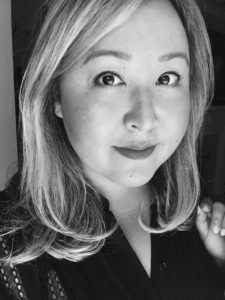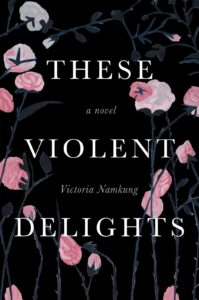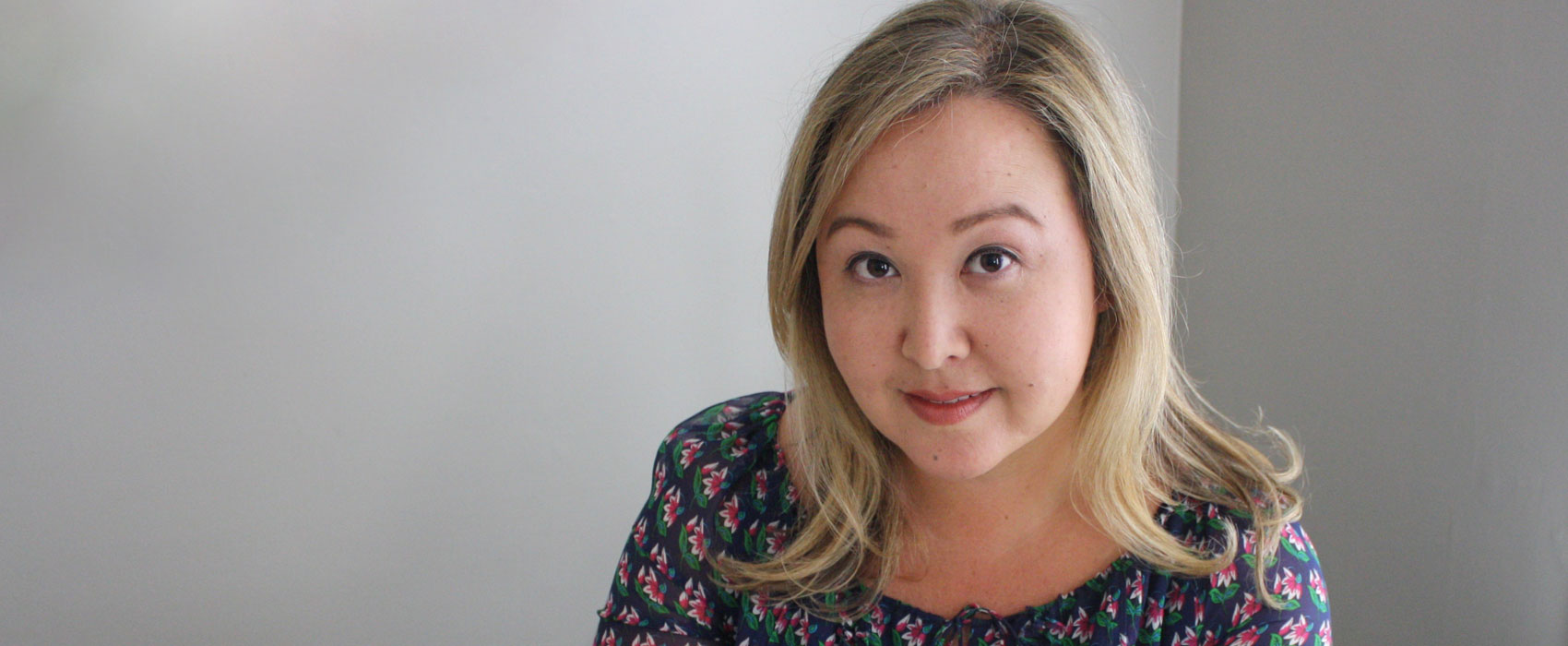Victoria Namkung is Los-Angeles based writer with a background in journalism. Her second novel, These Violent Delights, was published on November 7, 2017. It is available through Powell Books, Amazon, or your local bookstore.
Molly Higgins (MH): Please introduce yourself and briefly describe your literary work and career path to date.
Victoria Namkung (VN): I’ve been a Los Angeles-based writer since 1998. I moved here to get a master’s in Asian American Studies from the University of California, Los Angeles and worked part-time at Los Angeles magazine as a fact checker. After working as a full-time journalist for 15 years—and fantasizing about writing a novel for that entire time—I finally found the courage to try fiction. My first novel, the romantic thriller The Things We Tell Ourselves, was published in 2015. After a six-month break, I began writing my second book, These Violent Delights, which is a female revenge story that deals with illicit teacher and student relationships and their aftermath. I hope to continue doing journalism and writing books. I am not trained to do anything else except cocktail waitressing.

MH: You did a lot of research for this book—interviewing students, sex abuse experts, teachers, and parents. What about sex abuse in elite schools holds your attention?
VN: Elite schools tend to be extra protective of their brands and legacies, so oftentimes they don’t properly investigate claims or they play down allegations or engage in cover-ups much like the Catholic Church did for so many years. It’s bad enough that students are harassed, abused, or assaulted in any of our schools, but at elite institutions, parents are paying up to $40,000 a year in tuition and rarely see any form of justice if their child is a victim of a predatory teacher. Another thing that sticks out is the fact that students and teachers can be inappropriately close with one another at these elite schools. It doesn’t mean there’s abuse going on, but from the students and alumni I spoke with, they know way too much about each other’s lives. I don’t think teachers should see their students as peers, friends, or confidantes.
MH: Your book is so timely. There’s been so much discussion recently about sexual assault, especially in relation to power. Do you see a place for fiction in those discussions? And if so, where?
VN: I think fiction can help start or expand important conversations. Regular news reports of predatory teachers in the media haven’t quelled this phenomenon or provoked massive outrage among Americans—in fact, sexual abuse rates in schools are up in disturbing numbers due to social media access and more people coming forward. Some parents are incredibly uncomfortable discussing sexuality with their kids, but perhaps they would feel okay passing on a book like mine. I certainly wish I had a book like this when I was 15. I believe fiction can help shift culture and improve people’s lives. If I didn’t, I wouldn’t write.

MH: Do you think your personal identity influences your writing and/or the diversity of your readership? How?
VN: Absolutely. In both of my books I’ve featured mixed Asian American protagonists. It’s important to me because I never saw myself represented in any of the hundreds of books I read. Until Celeste Ng’s 2014 bestseller, Everything I Never Told You, I couldn’t recall one instance where I saw a family like mine—with a white mom and Asian dad and mixed kids—portrayed in literature. Readers, particularly younger women of color, are often thrilled when they realize my novels include ethnically diverse characters that they can relate to. When I speak in public or have a book event, there’s usually a twentysomething Asian American woman sitting towards the back staring at me with laser-like focus and a small smile. I know exactly what she’s thinking: If she did it maybe I can do it too. A lot of people don’t consider what could be possible until they see someone who looks like them doing it.
MH: We’re always looking for more to read. Who are five authors we should we be reading? Why?
VN: Maggie Nelson writes so poetically that I wish her books would go on for hours longer. Joel Peterson wrote an incredible book, Dreams of My Mothers, about being a biracial Korean adoptee that is incredibly moving. There’s a mysterious writer named xTx, who I learned about from Roxane Gay’s Twitter, and her prose stabs you in the best way. For young adult literature, I love Kim Askew and Amy Helmes’ Shakespeare-inspired Twisted Lit Series. Samantha Irby’s book of essays, We Are Never Meeting In Real Life, made me laugh out loud in public on numerous occasions.
MH: You’re being interviewed by a librarian, for an audience of progressive Asian American librarians. What are your thoughts on libraries, and their place in building diverse communities?
VN: I had an exhibition of my Mr. Men and Little Miss books at my local public library when I was 8. Since I was a kid, I’ve spent many afternoons and evenings in libraries over the years. Libraries make me feel good and give me hope for the future. I always get along with librarians and admire people who dedicate their careers to helping others discover worlds that differ from their own. Librarians have the power to diversify libraries, even in communities that aren’t diverse. We know books help people develop empathy and shed ignorance, so this is key. That ability to step into someone else’s shoes, if only for a few hours, can be transformative. When I was 19, I read Monica Sone’s Nisei Daughter and it changed the entire trajectory of my life. If more people read diverse books, there’d be a lot less hate and fear in this country.
MH: What advice would you give young professionals, especially those from diverse backgrounds, who are interested in a career in writing?
VN: I’d tell them they have to actually write. A lot of people love the idea of being a writer, but they don’t like the part where you have to sit down and write and edit for months or years with no guarantee of publication or an audience. If they’re not living in a major city, I’d suggest using social media to form a community with other writers and current authors. There are fantastic resources and organizations that didn’t exist years ago such as Writers of Color and We Need Diverse Books. Aspiring writers can benefit from going to local readings, meeting authors, and finding like-minded folks who they can commiserate with and cheerlead for them when needed.
You can follow Victoria on social media at:
- Facebook: https://www.facebook.com/victorianamkung/
- Twitter: https://twitter.com/victorianamkung
- Instagram: https://www.instagram.com/victorianamkung/
- Goodreads: https://www.goodreads.com/author/show/7064714.Victoria_Namkung
- Pinterest: https://www.pinterest.com/victorianamkung/
Editing assistance provided by Shanna Kim.

